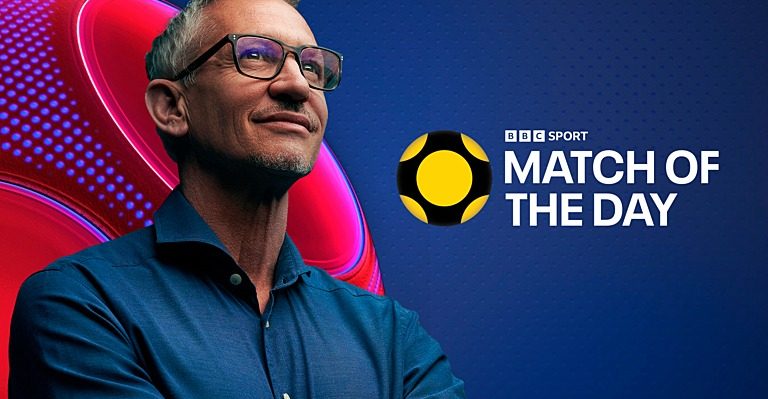End of an era: Gary Lineker’s Match of the Day departure
After 26 years as the host of BBC’s Match of the Day, Gary Lineker bade farewell to his career with the BBC. His departure is clouded in the controversy of a social media post he had shared, titled ‘Zionism explained in two minutes’, involving imagery which is historically associated with antisemitic propaganda. Lineker issued an apology, acknowledging the upset which the post had caused and its “awful connotations”. Though Lineker had previously agreed with the BBC that he would step down as Match of the Day host at the end of the current Premier League season, his exit from the corporation is a premature one, as he will no longer navigate the BBC’s coverage of next season’s FA Cup nor the 2026 World Cup as previously agreed upon.
This is not the first time that Lineker has found himself at the centre of controversy. In 2023, he was temporarily suspended from the BBC after he criticised the then Conservative government’s asylum policy, comparing the rhetoric to that of 1930s Germany. His comments ignited a nationwide debate about impartiality and free speech and led to other BBC presenters pulling out of their respective shows in solidarity with Lineker. The incident led to the BBC introducing stricter social media rules for presenters of flagship programmes outside news and current affairs, in that they must respect the BBC’s impartiality. Still, Lineker refused to ‘stick to football’ and remained not only involved but vocal on political issues. In February, he signed a letter which urged the BBC to reinstate a documentary on Gaza that it had removed from BBC iPlayer after it had been revealed that the narrator of the programme was the son of a Hamas official. Following his most recent bout of controversy, Lineker was interviewed by The Telegraph in which he said: “If you’re silent on these issues, you’re almost complicit.” For some, Lineker’s refusal to separate politics from sports broadcasting marred his reputation, but for others it made him a figure lauded for being willing to use his platform to incite activism. Even more recently, what was supposed to be Gary Lineker’s final interview with Mohamed Salah has been cancelled, supposedly based on fears that the two would strike up political discussion.
The question beckons; will Match of the Day survive without Gary Lineker?
Beyond the headlines, Lineker’s departure strikes an emotional chord. For countless fans, such as myself, Match of the Day was part of the fabric of growing up. Without access to Sky Sports, the programme was my primary window into the Premier League, and Gary Lineker was integral to that experience. Many viewers will remember the hilarious moments that defined his time on the show, none more iconic than when he presented Match of the Day while wearing only his Leicester City boxer shorts following Leicester’s miracle title win in 2016. That moment perfectly encapsulates what made Lineker so lovable: his humour but also his deep-rooted love of football.
In Lineker’s final episode as host of the programme, he was let known just how much he was appreciated by the footballing world. Tributes and testimonies from the likes of Virgil Van Dijk and Pep Guardiola were lauded upon him, whilst pundits Micah Richards and Alan Shearer presented him with a commemorative cap and golden boot. Lineker himself could not hold back tears as he signed off by thanking the whole production team of the programme and labelling his time on the show as “utterly joyous”.
Lineker’s time at the helm defined a generation of football fans
Without Lineker, Match of the Day goes on under Kelly Cates, Mark Chapman, and Gabby Logan. The trio each bring something different to the role, Chapman having already hosted Match of the Day 2, Logan not only working as somewhat of an understudy to Lineker this season but also having experience hosting Final Score on the BBC, and Cates bringing presenting experience from her role on Sky Sports. The introduction of female hosts signals progress in a space that has been dominated by male voices for years. Their engagement in the role will hopefully normalise female leadership in football media – something long overdue. They will no doubt bring a fresh dynamic to the programme, but they also inherit the challenge of preserving the soul of a show so closely associated with Lineker’s presence.
The question beckons: will Match of the Day survive without Gary Lineker? The programme already exists as a relic of a Premier League age where it provided clips of goals and recaps of games which were not available for live viewing on TV. Fans can find these now on various social media platforms such as YouTube, and as such, the programme’s viewership can only be expected to further collapse. As someone who would watch the show every weekend, I now only catch glimpses of the show on social media sites, primarily consisting of humorous moments between Gary Lineker and company. But now he’s gone, the show will not and cannot be expected to provide the same familiar comfort. Whether or not it survives in a changing media landscape remains to be seen – but one thing is certain: Gary Lineker’s time at the helm defined a generation of football fans, and his legacy will echo long after the final whistle.

Comments